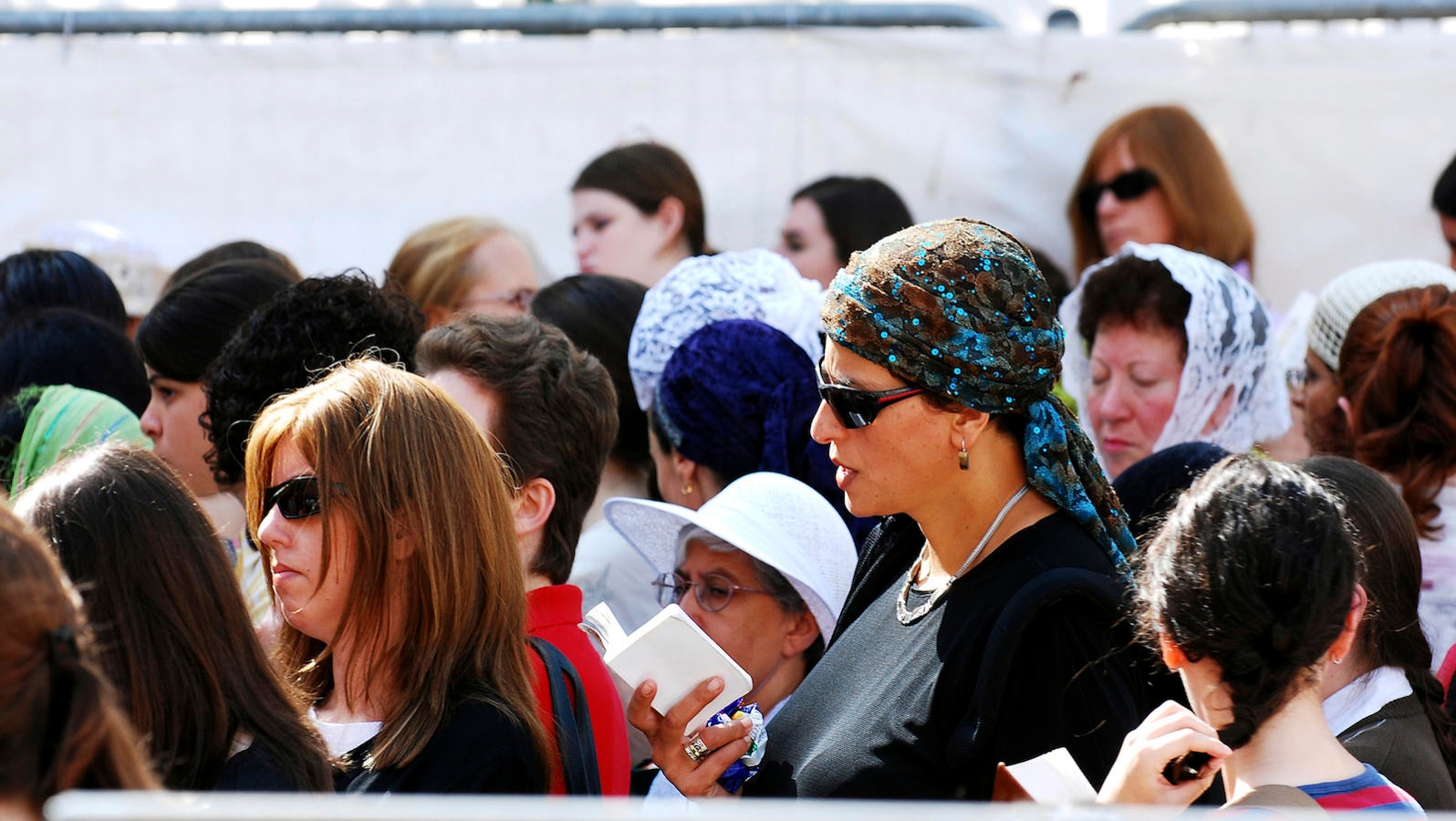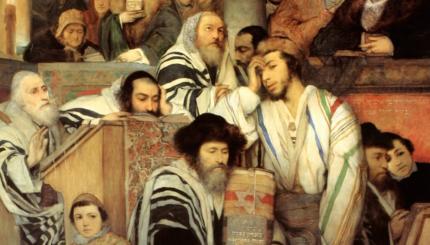Hallel is a prayer of thanksgiving added to the morning service on festive Jewish holidays. The prayer, whose Hebrew name literally means “praise,” is comprised of six psalms (113-118) that amount to an extended expression of praise and thanks to God for the many kindnesses bestowed upon Israel.
Hallel is recited on the first two days of Passover, Shavuot, Sukkot and Hanukkah. A shortened version, known colloquially as Half Hallel, is recited on the last six days of Passover and Rosh Chodesh, the celebration of the new Hebrew month. Some Jews also recite it on Israeli Independence Day and Jerusalem Day, which celebrates the unification of the Israeli capital in 1967. A version of Hallel is also recited during the Passover Seder. Hallel is not recited on Rosh Hashanah and Yom Kippur due to the more somber tone of those observances (Arachin 10b). Reciting Hallel is regarded as a mitzvah, and it begins with a benediction praising God for the commandment of its recitation.
The tradition of reciting Hallel is discussed in various places in the Talmud. The rabbis debated the particular traditions associated with Hallel — including, for example, when to shake the Four Species during the recitation of Hallel on Sukkot — as well as its content. In Pesachim 118a, a teaching is recorded that the particular psalms included in Hallel were chosen because they mention five specific things: the Exodus from Egypt, the splitting of the Red Sea, the giving of the , the resurrection of the dead, and the pangs of the Messiah (the period of strife and chaos that will precede the messianic age).
The also records several traditions regarding the origins of Hallel, with one opinion suggesting it was recited as the Jewish people emerged from the split sea during the Exodus from Egypt — despite the fact that the psalms themselves are commonly attributed to King David, who lived much later. Other traditions recorded in the Talmud attributed it to Joshua, Deborah or some of the later prophets.

Help us keep Jewish knowledge accessible to millions of people around the world.
Your donation to My Jewish Learning fuels endless journeys of Jewish discovery. With your help, My Jewish Learning can continue to provide nonstop opportunities for learning, connection and growth.
Given its celebratory nature, many sections of Hallel are commonly sung out loud, sometimes in unison and sometimes responsively.
Some of the most famous lines in all of Psalms are included in the Hallel recitation. Among them:
מְקִ֥ימִ֣י מֵעָפָ֣ר דָּ֑ל מֵ֝אַשְׁפֹּ֗ת יָרִ֥ים אֶבְיֽוֹן׃
He raises the poor from the dust, lifts up the needy from the refuse heap
לְהוֹשִׁיבִ֥י עִם־נְדִיבִ֑ים עִ֝֗ם נְדִיבֵ֥י עַמּֽוֹ׃
to set them with the great, with the great men of His people.
מָה־אָשִׁ֥יב לַיהֹוָ֑ה ל־תַּגְמוּל֥וֹהִי עָלָֽי׃
How can I repay the LORD for all His bounties to me?
כּוֹס־יְשׁוּע֥וֹת אֶשָּׂ֑א וּבְשֵׁ֖ם יְהֹוָ֣ה אֶקְרָֽא׃
I raise the cup of deliverance and invoke the name of the LORD.
מִֽן־הַ֭מֵּצַר קָרָ֣אתִי יָּ֑הּ עָנָ֖נִי בַמֶּרְחָ֣ב יָֽהּ׃
In distress I called on the LORD; the Lord answered me and brought me relief.
יְהֹוָ֣ה לִ֭י לֹ֣א אִירָ֑א מַה־יַּעֲשֶׂ֖ה לִ֣י אָדָֽם׃
The LORD is on my side, I have no fear; what can man do to me?
Gemara
Pronounced: guh-MAHR-uh, Origin: Aramaic, a compendium of rabbinic writings and discussions from the first few centuries of the Common Era. The Talmud comprises Gemara and the Mishnah, a code of law on which the Gemara elaborates.

Help us keep Jewish knowledge accessible to millions of people around the world.
Your donation to My Jewish Learning fuels endless journeys of Jewish discovery. With your help, My Jewish Learning can continue to provide nonstop opportunities for learning, connection and growth.
Purim
Pronounced: PUR-im, the Feast of Lots, Origin: Hebrew, a joyous holiday that recounts the saving of the Jews from a threatened massacre during the Persian period.

Help us keep Jewish knowledge accessible to millions of people around the world.
Your donation to My Jewish Learning fuels endless journeys of Jewish discovery. With your help, My Jewish Learning can continue to provide nonstop opportunities for learning, connection and growth.
Yerushalayim
Pronounced: yuh-ROO-shuh-LIE-yum (long i), Origin: Hebrew, Jerusalem.

Help us keep Jewish knowledge accessible to millions of people around the world.
Your donation to My Jewish Learning fuels endless journeys of Jewish discovery. With your help, My Jewish Learning can continue to provide nonstop opportunities for learning, connection and growth.



